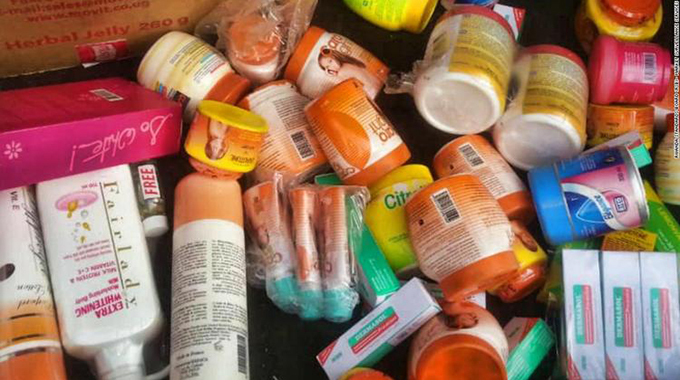The quest for whiteness

Collen Takaza University of Zimbabwe
A hankering for whiteness has caused a huge number of people to put their health on the line.
Skin-lightening products are frequently used but their inappropriate and overuse are increasingly becoming a challenge to public health fraternity.
The desire to have white skin is the driver for the skin-lightening industry in Zimbabwe. Most skin-lightening products are a blend of compounds such as hydroquinone, mercury, and steroids, and most of the products are illegally sold on the streets.
Common skin-lighteners include Movate, Betasol, Epidem, Lemon-vate, Diproson, Bu-tone, and Clearton. This list is not exhaustive.
From various reports on the use of these products there is a demonstration of a plethora of complications that include eczema, neurological disorders, and foetal damage and other complications that are either induced or aggravated by the misuse of skin-lightening products.
Skin-lightening creams are also known to cause skin cancers, permanent pigmentation, itching, skin peeling and thinning of the skin leaving it badly damaged and susceptible to other infections.
Sadly, the craziness for the lighter skin has taken university students by storm.
A survey conducted at the University of Zimbabwe in 2014 by January James and colleagues— “Use of skin-lightening creams among female university students in Zimbabwe: A preliminary survey”, published in the Medical Journal of Zambia in 2018 reveals that 20 percent of female students at this institution of higher learning use skin-lightening creams and 94,9 percent of the women knew of someone who uses the creams.
This is ample evidence that the issue of skin-lightening and bleaching products is a cause for concern among university students particularly females.
The foundational question that comes to mind is: “Why whiteness?”
There are several explanations as to why people choose skin-lightening creams despite knowing the risk associated with this practice.
There is a false impression across several cultures that light skin is associated with beauty and a higher social status. As for others especially women, the use of skin lightening products is motivated by the need to increase their chances of getting married. The other perception is that lighter skin tone gives a younger look and it can as well provide one with high self-esteem.
These perceptions challenge the view that black is beautiful.
Colonial conditioning in Zimbabwe is considered one of the causative factors for the belief that white is powerful and white is beautiful as normally the white race was the ruling class and the indigenous were the oppressed.
Other researchers have also unearthed that people’s judgments about other people are literally coloured by skin tone so that darker-skinned individuals are seen as less intelligent, dependable, and nice-looking than their lighter-skinned counterparts.
Ngugi Wa Thiongo speaks of “decolonisation of the mind” and there is a sense in which the African woman needs to understand that being black is not synonymous with ugliness.
Beauty and power cannot be determined merely by the skin tone. It is very much possible to look as great as a dark-skinned person.
One female student with a local university says: “I think having fairer skin is the way to go these days. I personally use skin-lightening products to enhance my looks and to remain competitive on the market.
“I have seen men drool over women with lighter skin, so I greatly prioritise my looks.”
The research by January James and colleagues indicate that most of the women in the study population favoured light skin and most of the female students agreed that light skin is a symbol of gorgeousness, success, and wealth — a notion that is rampant in most of Africa.
These factors have become an influence on the use of skin-lightening creams.
Several female university students interviewed, admitted experiencing undesirable effects such as thinning of the skin and severe itching as a result of using skin-lightening products. Lack of correct information, on some of the adverse effects of using skin-lighteners pose a serious health threat to women who use them.
A significant number of female university students however professed knowledge about the downside of using these skin-lighteners but said that they were prepared for the risk.









Comments